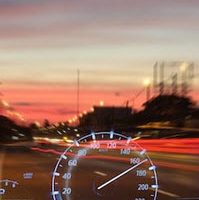4 Ways a Driver Can Face Reckless Driving Charges in Virginia

Reckless driving is a broad criminal offense in Virginia, prohibiting drivers from engaging in careless or dangerous behavior on state roads. Whenever a driver puts other people or property at risk of harm, it can qualify as reckless driving under Virginia law. Furthermore, Virginia features many specific rules and regulations concerning reckless driving, including the four provisions detailed below.
- Driving in Public, Commercial & Construction Areas
Code of Virginia Section 46.2-864 prohibits drivers from recklessly operating their vehicle in certain locations. Specifically, Section 46.2-864 makes it unlawful to endanger the life, limb, or property of another person while driving on:
- Public Driveways — Includes churches, schools, recreational facilities, business, or government properties that are open to the public;
- Commercial Parking Lots — Includes commercial parking lots that businesses provide for customers, patrons, or employees; or
- Construction Sites — Includes any highway that is under construction and not yet open to the public.
- Entering Highways from Side Roads
Code of Virginia Section 46.2-863 requires drivers to stop their vehicle when entering a highway from a side road. These requirements apply if there is approaching traffic within 500 feet of the driver’s vehicle. On the other hand, Section 46.2-863 does not apply if there is a “Yield Right-of-Way” posted at the entrance to the highway.
- Passing Stopped School Buses
Code of Virginia Section 46.2-859 prohibits drivers from passing or overtaking a school bus that is stopped for loading or unloading passengers. Before passing such a school bus, drivers must wait until all passengers are clear of the highway, private road, or school driveway.
There is an important restriction in Section 46.2-859. The term “school bus” only applies to specifically designated vehicles. To qualify as a school bus, the vehicle must be:
- Painted yellow;
- Marked with the words “school bus” in eight-inch black letters on the front and back; and
- Equipped with standard warning devices in accordance with Code of Virginia Section 46.2-1090.
Additionally, there are two exceptions to Section 46.2-859. A driver may pass a stopped school bus if:
- There is a physical barrier or unpaved area separating the driver’s vehicle and the stopped school bus; or
- A law enforcement officer or uniformed crossing guard directs the driver to pass the stopped school bus.
- Passing at Railroad Crossings & Highway Intersections
Code of Virginia Section 46.2-858 restricts when drivers can pass or overtake other vehicles at railroad crossings and highway intersections. In most cases, a driver is not allowed to pass another vehicle traveling in the same direction at a railroad crossing or highway intersection.
That being said, there are several exceptions to Section 46.2-858. A driver may pass another vehicle traveling in the same direction at a railroad crossing or highway intersection if:
- There are two or more lanes designated for each direction of travel;
- The intersection is marked as a passing zone; or
- A law enforcement officer orders the driver to do so.
Contact Us Today for Professional Help
If you have legal questions about reckless driving in Virginia, it is helpful to schedule a consultation with a skilled criminal defense attorney. The attorneys at Simms Showers LLP, servicing Leesburg, Winchester, Fairfax, and Manassas, have validated experience in the field of criminal defense, including reckless driving cases. If you need legal help with reckless driving or other aspects of criminal defense, contact us today for a free initial consultation.
